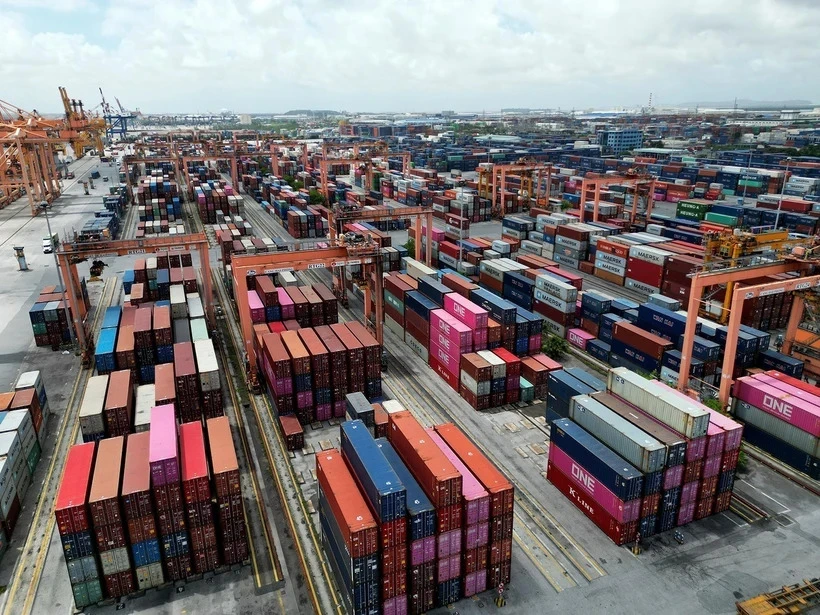Int’l organisations share positive outlook for Vietnam’s economy
Vietnam's economy is experiencing a surge, fueled by strong export and industrial production, according to a series of reports from international organisations.

Vietnam's economy is experiencing a surge, fueled by strong export and industrial production, according to a series of reports from international organisations.
The International Monetary Fund (IMF) expressed optimism in its 2024 Article IV consultation with Vietnam. Its head Paulo Medas predicted a nearly 6% growth for the Vietnamese economy in 2024, supported by robust external demand, stable foreign direct investment (FDI), and recent policy adjustments. Inflation is expected to stay within the State Bank of Vietnam (SBV)'s target range of 4-4.5% this year.
The fund welcomes Vietnam's efforts to streamline the real estate sector by amending the Land Law and other related regulations, he said, stressing the need for Vietnam to continue restructuring struggling property developers and fostering a healthy corporate bond market.
The Standard Chartered Bank released an update projecting Vietnam's GDP growth at 5.3% in the second quarter. Its experts forecast significant growth in retail sales (8.2% year-on-year) and exports (14.2%) for June. The electronics export sector is expected to maintain its upward trajectory throughout the year.
Import growth and industrial production are anticipated to reach 26% and 5.2%, respectively, in June. Inflation may rise slightly to 4.5% from 4.4% in May, marking the third consecutive month it stayed above 4%. Rising costs in education, housing, health care, and food are driving this inflation, and the trend is likely to continue in the coming months.
A World Bank (WB) report dated June 19 indicated a 2.6% month-on-month increase in Vietnam's industrial production index (IIP) for May. This growth was primarily driven by the manufacturing and processing sectors, particularly machinery, equipment, computers, and electronics. The report highlighted a notable rise in the import of intermediate goods, suggesting strong demand from trade partners and potentially even higher export levels in the near future.
As of the late May, FDI commitments reached 11.07 billion USD, reflecting a 2% year-on-year rise. Cumulative FDI disbursements also saw an uptick, reaching 8.3 billion USD (up 7.8% annually), with most flowing into manufacturing, processing, and real estate.
Meanwhile, the Asian Development Bank (ADB) reported a 7.7% growth in Vietnam's local currency bond market in the second quarter compared to the previous one, which was attributed to increased government bond issuances and the SBV's resumption of issuing treasury bills in March. Treasury and other government bonds rose by 3.3% in Q2 to support government funding needs. In contrast, corporate bonds fell by 0.9% due to a large volume of maturing bonds and low issuance volume.
Vietnam's sustainable bond market, comprised primarily of green bonds issued by individual enterprises, reached a size of 800 million USD by the end of March. Most of them have short maturities./.








